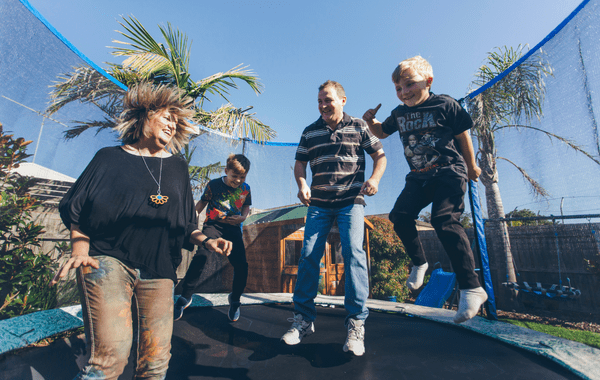Going offline for a digital detox

Healthy meals to nourish the body are all part of the package at Revitalise Escapes. Photo: INDIE LANE PHOTOGRAPHY
Living in a digital age, many of us are glued to screens for hours each day.
Perhaps you come home from a day working at a computer to scroll through social media or flick on the TV, and a few hours without technology might strike fear in your heart.
But technology comes with its challenges, and a digital detox might be exactly what you need.
Too much screen time has been linked to have negative effects on weight, motor and cognitive development for young children, as well as negatively impacting social and psychological wellbeing, emotional and behavioural problems, anxiety, hyperactivity, attention, self-esteem issues and psychosocial health.
Most Australian children spend more time on screens than is recommended.
Primary research suggesting only 17–23 per cent of pre-schoolers and 15 per cent of 5–12-year-olds meet screen time guidelines.
The digital detox is a trend gaining attention as an effective attempt to find balance in this digital world and counter the negative effects of technological addiction and reliance.
A digital detox is simple. It is the act of putting away all screens, technology, mobile phones and social media platforms for a few hours, or days, in order to be present in the moment.
Jo Surkitt, owner of Revitalise Escapes, has been practising and encouraging digital detoxes for a number of years and said digital detoxes were becoming a necessity in today’s day and age.

“A digital detox now and then is becoming essential in today’s lifestyle,” Surkitt said.
“We seem to be available too often these days, checking texts, emails, messages and calls, feeling the need to respond to everyone instantly and this makes many of us feel stressed, overwhelmed, exhausted and frazzled.
“It also creates unnecessary ‘busyness’ in our lives.”
Surkitt said that a digital detox on a regularly basis, whether you go completely off grid for a week away or simply put your devices away for a weekend, or even a day, is highly beneficial for your wellbeing.
“Not having a device to check regularly has a variety of positive benefits, which include reducing stress and overwhelm, improves focus and productivity without constant interruptions, enhancing sleep quality from less blue light from screens, improves in-person communication and social connection, being more present and attentive; and having quality conversations with people, reduces FOMO, as you don’t know what you are missing out on, and also sets a better work-life balance.
“You will also find you will have more time to do the things you enjoy and love.”
At Revitalise Escapes, Surkitt runs tours and retreats to help guests focus on spending time in nature or taking part in practices such as yoga, meditation, thermal springs or sound healing, without devices present.

But you don’t need to go on a retreat to put your device away.
“If you feel it’s time to have a digital detox, put your devices away into a box for a weekend or maybe make a few days of it and incorporate it into a wellness trip away,” Surkitt said.
“You not only have the chance to escape from the stresses of daily life, but can stimulate your mind in a beautiful location and learn healthier habits.”
“It’s a great chance to not just relax, but also to improve your mental, physical and emotional well-being.”

















